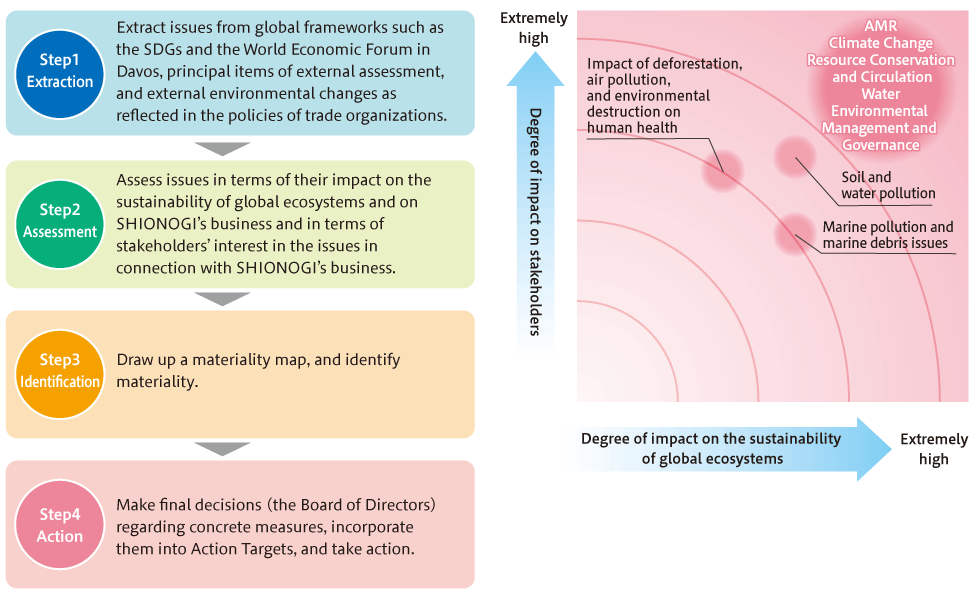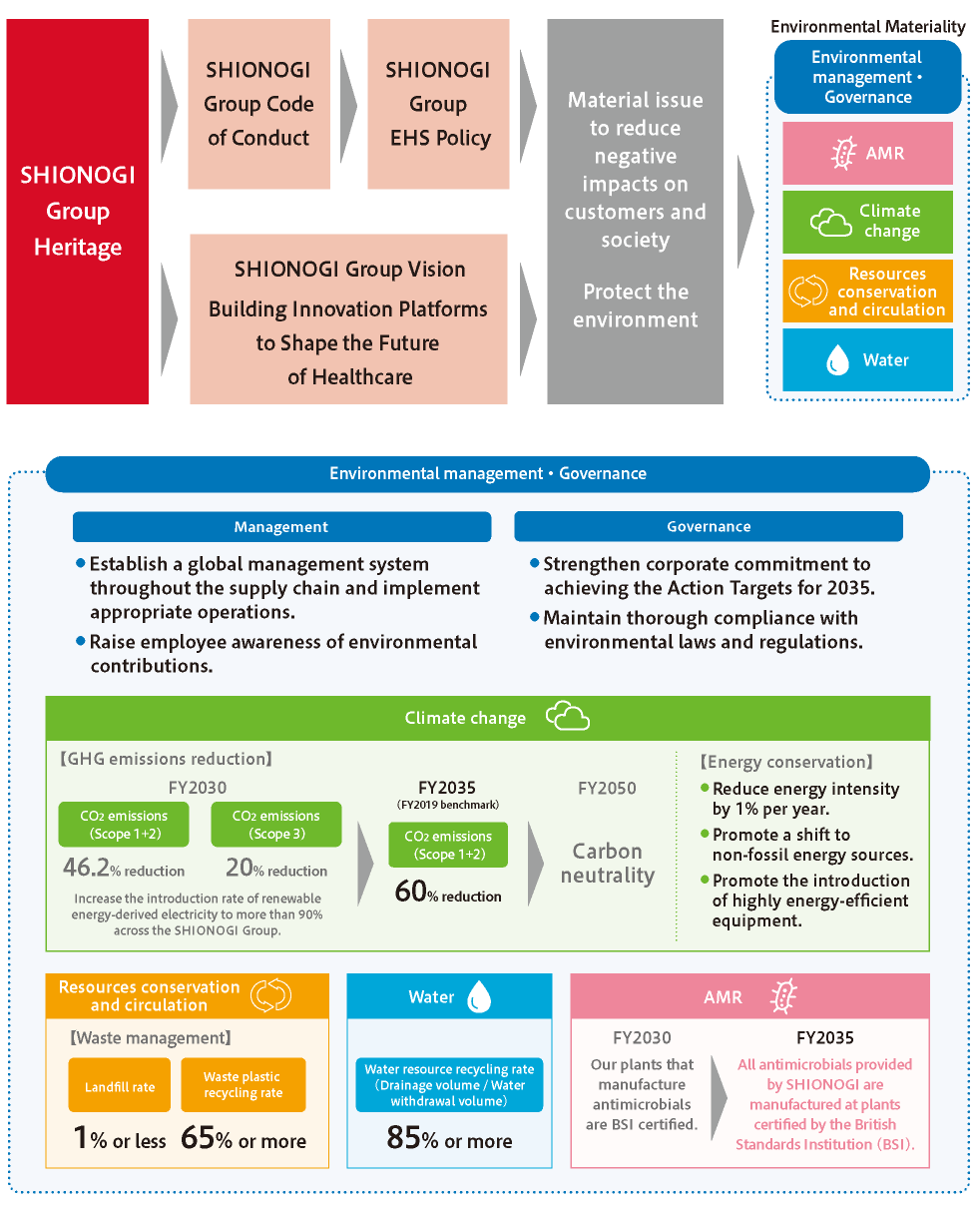Environmental Materiality (Material Issues)
Furthermore, SHIONOGI lists the environmental issues to be addressed by exploring changes in the relevant external business environment and through in-depth dialogue with external stakeholders, including ESG investment institutions, external experts, and internal related departments. These issues are evaluated based on the Environmental Reporting Guidelines published by the Ministry of the Environment, Japan, in terms of their impact on the sustainability of global ecosystems and on stakeholders. As a result, SHIONOGI identifies “Environmental Materiality” as a priority environmental issue to address. For each identified environmental materiality, SHIONOGI formulates specific medium- and long-term targets as the SHIONOGI Group EHS Action Targets, along with annual EHS Action Plans, ensuring practical and effective responses by continuously implementing, reviewing, and reflecting the results in the following year’s targets.
The SHIONOGI Group EHS Action Targets are decided after discussion by the SHIONOGI Group Companywide EHS Committee and subsequent deliberation by the Corporate Executive Meeting and the Board of Directors. The Senior Executive Officer and Senior Vice President of the Sustainability Management Division, who serves as the Corporate Officer in charge of EHS, determine the EHS Action Plan after discussion by the SHIONOGI Group Companywide EHS Committee.

Identification Process of “Environmental Materiality”
Material issues |
Summary of identification |
|---|---|
| AMR | AMR is a global issue that a pharmaceutical company manufacturing antimicrobials cannot ignore. The emergence of AMR impacts global ecosystems enormously. |
| Climate change | Responding to climate change is essential for the sustainability of global ecosystems. Meanwhile, stakeholders’ demand for action in this regard is growing increasingly strong. |
| Resources conservation and circulation | Reducing waste and circulating resources mean effectively utilizing limited resources and are essential for the sustainability of global ecosystems. This is a part of the problem of marine plastic, and stakeholders’ interest in this international issue has been growing in recent years. |
| Water | With the growing probability of occurrence of torrential rainfalls and floods, water risks (particularly physical risks) must be closely watched from the perspective of BCP. Water is an indispensable factor for the business continuity of pharmaceutical companies and essential for the sustainability of global ecosystems. |
| Environmental management and governance | As SHIONOGI’s business activities expand, its operating sites are increasing globally. In this situation, SHIONOGI needs to respond appropriately to global environmental issues such as climate change, environmental pollution, and the depletion of natural capital, and demonstrate the results of its efforts to stakeholders. |
Environmental materiality involves considering the necessary countermeasures for identified issues considering SHIONOGI’s activities across each value chain and reflecting these in the SHIONOGI Group EHS Action Targets.
To continue providing value to society and meeting the expectations of stakeholders, SHIONOGI intends to further deepen its efforts by specifying concrete activities and KPIs related to environmental materiality.
Environmental Materiality and the value chain
|
Purchase |
R&D |
Manufacturing |
Distribution and sales |
Use and disposal |
|---|---|---|---|---|---|
AMR |
Antimicrobial release management |
|
Antimicrobial release management |
|
Promotion of responsible antimicrobial use |
Climate change |
Introduction of energy-saving equipment |
Introduction of energy-saving equipment |
Introduction of energy-saving equipment |
Introduction of hybrid vehicles |
Change in or recycling of containers and packaging materials |
Resource conservation and circulation |
Green purchasing |
Design of environmentally responsible products |
3Rs of waste materials |
|
Reuse and recycling of containers and packaging materials |
Water |
Water risk assessment |
Water risk assessment, water conservation, wastewater management |
Water risk assessment, water conservation, wastewater management |
|
|
| Environmental management and governance | Establishment and strengthening of an environmental management and governance structure at each business site and organization of SHIONOGI | ||||
Environmental Materiality and the SHIONOGI Group EHS Action Targets (Environment)

